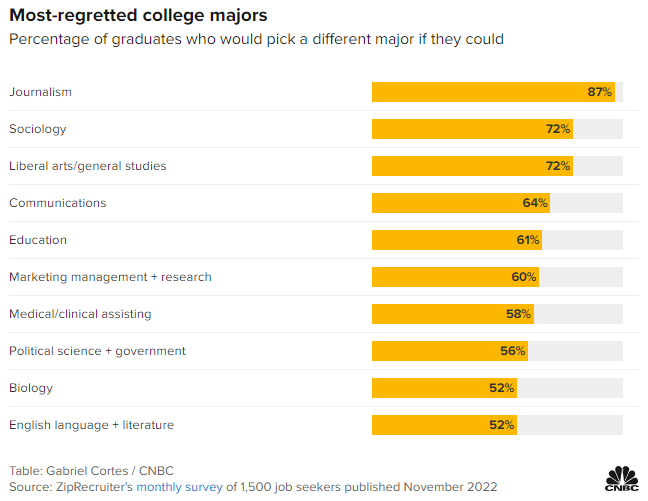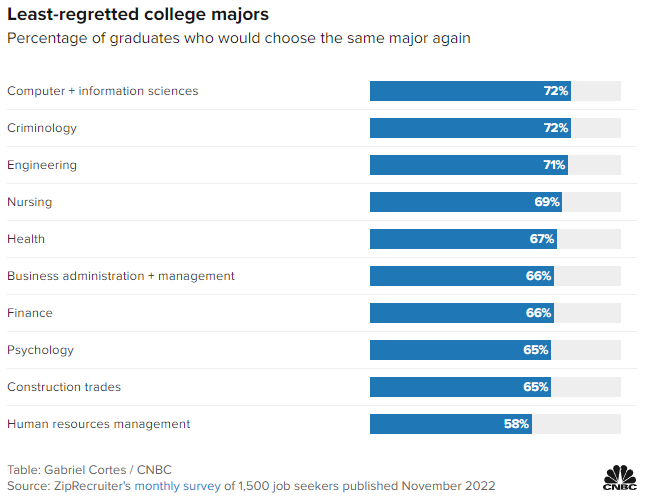Less-effective altruism
1—Less-effective altruism
How should we rate effective altruism given the spectacular fall of "big-money philanthropist" Sam Bankman-Fried? According to Ross Douthat, while the movement has "admirable goals", it can also lead to a :
"Mrs. Jellyby temptation, where 'telescopic philanthropy' aimed at distant populations is easier than taking on obligations to your actual neighbors and communities. (Picture effective altruists sitting around in a San Francisco skyscraper calculating how to relieve suffering halfway around the world while the city decays beneath them.) The broader project is inevitably shadowed by the hubris of technocracy: You may think your evidence-based analysis enables you to come up with just the right policy mix to ward off humanity's greatest long-term threats, but if you didn't short Bankman-Fried's company six months ago, how confident should we be in your view of the 22nd century's stakes?"
You can read Douthat's full article here (~8 minute read), which offers up a range of other interpretations, including a "purely negative reading... [where] E.A. is corrupted at root by its connection to a utilitarianism that, whatever protestations it may make, will always end up justifying wicked means for the sake of noble-seeming ends".
2—Risk-averse research
The US government spends more on research and development (R&D) as a share of GDP than it did during the peaks of the early 1960s space race. But it hasn't translated into productivity growth:
"Total factor productivity, the best metric for innovation's contribution to growth, grew just 0.5% a year over the past decade, half its rate of the 1960s. Other evidence suggests breakthroughs, such as new drug discoveries, are becoming more expensive and time-consuming, and researchers spend ever more years acquiring training and experience before achieving novel discoveries. In other words, the U.S. is getting progressively less bang for its scientific buck."
That's from Greg Ip, who concludes that "scientific productivity has something to do with how research is done, not how much":
"One culprit, in the view of Mr. Collison and many others, is that the institutions that fund science have become process-oriented, narrow-minded and risk-averse. Wary of failure, they favour established researchers pursuing narrowly focused, incremental ideas over younger scientists with more heterodox agendas."
You can read Ip's full article here (~5 minute read), which argues that the people who dole out government research grants should give more "priority to curiosity over specificity and speed over deliberation [to] really enhance discovery and innovation".
3—What to study
What should you, or your kids, study at university? While the world is constantly changing and so too will this list, a new report from the Georgetown University Center on Education and the Workforce showcased the majors people most and least regretted studying after graduating:


4—Three questions to be answered
Sam Bankman-Fried's FTX/Alameda collapse will go down in the annals of bubble history. But what does it mean for the future of crypto? That was the question recently pondered by financial historian Niall Ferguson:
First, what the heck were the regulators thinking? We read in the Financial Times last week that 'The US Securities and Exchange Commission is investigating FTX over its crypto lending activities and management of customer funds.' Wait, the SEC investigates Bankman-Fried only now? As opposed to months ago?
...
Second, what is the future of crypto exchanges? ... Purist proponents of decentralised finance, such as my Hoover Institution colleague Manny Rincon-Cruz, have long argued that the exchanges are an aberration — an unwelcome intrusion into the world of DeFi from the world of TradFi (traditional finance). Sure, exchanges offered convenience, especially to speculative day traders looking for quick returns. But they also offered opacity. To an effective altruist looking to make billions in a hurry, transparency was an obstacle, which explains why SBF lobbied to 'kill DeFi' through the Digital Commodities Consumer Protection Act of 2022.
...
Finally, if exchanges are not necessarily the future, what will remain of cryptocurrency? To those, like my friend Nouriel Roubini, who have long predicted the collapse of the “sh**coins,” 2022 has been a good year. Readers of his new book, Megathreats, will relish his demolition of crypto as a giant Ponzi scheme dreamt up by 'scammers and carnival-barkers' to fleece naïve retail investors suffering from internet-induced FOMO. A great many crypto coins and tokens will indeed go to zero — indeed, many already have. Yet I am still not convinced that the experiment with blockchain-based finance will end up being a total failure.
You can read Ferguson's full essay here (~14 minute read), which provides plenty of background on the Bankman-Fried/FTX saga as well as examples of how "mad genius and grift and bubbles" can actually precede the creation of "establishment institutions" and generational booms.
5—Further reading...
☢️ "The United States will help Thailand develop nuclear power through a new class of small reactors, part of a programme aimed at fighting climate change."
💸 Probably won't do him much good in prison: "When FTX raised $420 million from an array of big-name investors in October last year... Left unmentioned was that nearly three-quarters of the money, $300 million, went instead to FTX founder Sam Bankman-Fried, who sold some of his personal stake in the company."
📉 Newly appointed FTX CEO John Ray III – who oversaw the liquidation of Enron – "minced no words in a filing with the U.S. Bankruptcy Court for the District of Delaware, declaring that 'in his 40 years of legal and restructuring experience,' he had never seen 'such a complete failure of corporate controls and such a complete absence of trustworthy financial information as occurred here'."
🤖 Meta's new AI (a large language model), Galactica, was taken offline after it was found to be making authoritative-sounding claims that "assault well-understood scientific facts, spitting out inaccuracies such as incorrect dates or animal names, requiring deep knowledge of the subject to catch".
🥩 "In an unprecedented effort, health scientists at the University of Washington scrutinised decades of research on red meat consumption and its links to various health outcomes... They only found weak evidence that unprocessed red meat consumption is linked to colorectal cancer, breast cancer, type 2 diabetes, and ischemic heart disease, and no link at all between eating red meat and stroke."